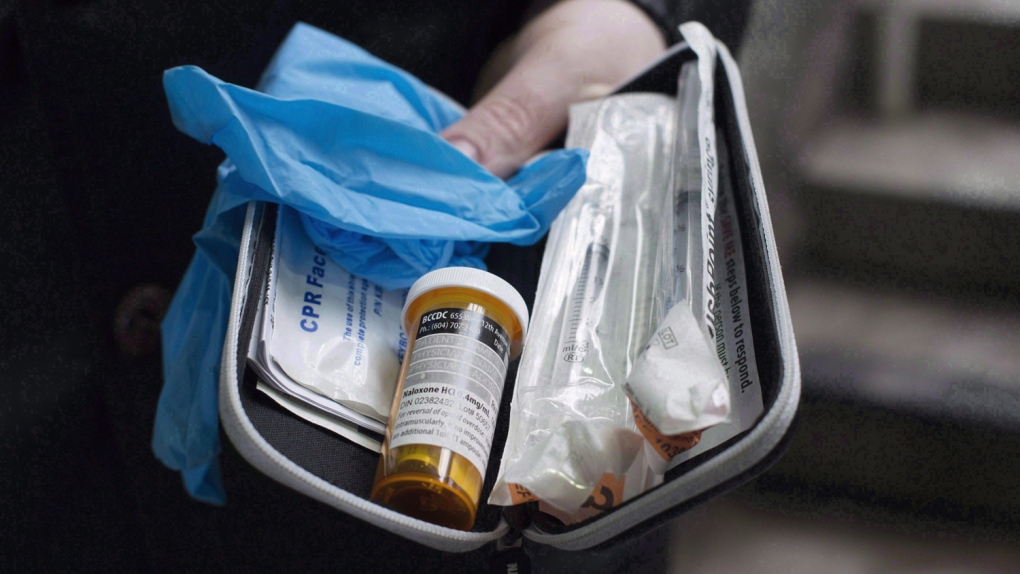November 9, 2021
-CTV
VANCOUVER –
In the first nine months of 2021, more than 1,500 people have died of illicit drug overdose in British Columbia.
In her latest report, the province’s chief coroner says it’s the most overdose deaths B.C. has ever seen in that time period.
Lisa Lapointe said in a statement Tuesday morning that 333 people died in August and September of this year, bringing the death toll so far to 1,534.
In addition to being the most-ever illicit overdose deaths seen in the first nine months of the year, it’s a 24 per cent increase over the 1,240 deaths recorded in the same period last year.
While a direct comparison cannot be made as the situations differ, B.C.’s other public health crisis – the COVID-19 pandemic – has claimed 1,061 lives in the same nine-month timeframe.
Lapointe said September was the 12th consecutive month in which at least 150 people died due to toxic illicit drugs. The average per month is now at 170 deaths.
Comparing the current death rate to 2016, when B.C. first declared a public health emergency, the rate has nearly doubled. It is now at 39.4 deaths per 100,000 residents in the province.
As for who is dying, 71 per cent of people are between 30 and 59, and most are male. The highest rates of death so far this year have been in the Vancouver, Thompson Cariboo, Northwest, North Vancouver Island and Fraser East health service delivery areas.
“The death rate due to toxic drugs has never been higher,” she said, noting drug toxicity remains the leading cause of unnatural death in B.C.
The chief coroner called the latest update “heartbreaking,” and as in previous months, noted an issue with a “volatile and increasingly toxic” supply of drugs, many of which are cut with the ultra-potent opioid fentanyl.
Lapointe said Tuesday fentanyl and its analogues have been detected in 84 per cent of all 2021 illicit drug deaths.
She said data collected this year suggests the even stronger analogue carfentanil has been noted this year in more than twice as many deaths as last year.
In addition to fentanyl, most people have had cocaine, methamphetamine/amphetamine or other opioids in their system when they died.
Lapointe did not mention the impact the pandemic has had on supply in her statement Tuesday, but health officials including emergency room doctors have previously noted a connection.
Border closures meant local dealers needed to find other sources, some even manufacturing their own supply. This means users who typically know their limits may be getting a different potency of drugs than they realize, risking overdose.
Additionally, many have cited physical distancing policies and a hesitancy to go to hospital for fear of contracting COVID-19 as having pushed people into using alone and unsupervised.
“Urgent action on a number of fronts is required,” Lapointe said, suggesting as she often does in these announcements a need for broader access to a safe supply of drugs including coaine.
She also pushed for enhanced drug-checking services and a shift from what she called a “law-enforcement focus to a health-centred approach,” which is already underway in B.C.
The province recently applied to the federal government to decriminalize possession of hard drugs for personal use.
“How many more deaths are we willing to accept to maintain drug policies and laws that have no basis in evidence?” Lapointe said.
Sheila Malcolmson, B.C.’s minister of mental health and addictions, issued a brief statement expressing her sympathies, and noting that illicit drug overdose deaths are an issue across Canada.
At the time, she said she’d have more comment at a news conference later in the day, during which she would also announce “new treatment and recovery services.”
What was announced at that news conference was that the province is adding just 10 more beds for those in need of treatment.
These specialized addiction-treatment beds are only in the Fraser Health area, at Phoenix Society in Surrey, though she said the services will benefit people “throughout British Columbia.” They’re earmarked for those whose substance-use dependency is deemed “severe,” or for those with “moderate to mild” mental-health challenges.
She also announced – in Fraser Health only – access to new and expanded regional services, including a virtual clinic, a new addictions consultation team and enhancements to existing programs.
Malcolmson noted the province has pledged $132 million in investments over the next three years for treatment and recovery.
“Our health-care system is undergoing a historic expansion of substance-use treatment and recovery services,” she said.




